Virtuous Circles
“Noi non vediamo mai le cose una prima volta, ma sempre la seconda.” –Cesare Pavese
Ramadan 1427
I am living in Kreuzberg, a part of Berlin which is, commonly thought of as a “Turkish” neighborhood. But once you scratch the surface and wander these streets which eventually mingle with those of Neukolln, you begin to notice many diverse cultures of Middle Eastern origin are also mixed in. Neukolln has an extreme unemployment rate, numerous “unpapered” immigrants and visible poverty. One day in October, 2006 with the air taking on that onerous hint of Northern European winter, I heard a song on the lips of certain people, but never a muzzein singing from a nasally tower megaphone. Although you will daily notice the bells of Christian churches, the song that brings the Islamic world to pray five times daily is largely absent from the streets of Berlin. What you hear of course is the rumble and jog of various kinds of machines and devices of telecommunication. It would be a controversial statement if I were to say that Islam is the last vestige of Medieval culture that lives on into the world of High Capitalism. But to insist on a dichotomy between Islamic culture and Commerce would be a complete misrepresentation of the central role of travel and trade in the spread of Islam throughout the world. I found myself thinking about the adhan which I have heard in various cities, sung by so many voices ranging from a devastatingly beautiful cry of love that might bring tears to your eyes to the hilarious warbling of a tone-deaf muzzein sputtering and crackling in a hopelesly short-circuited P.A. system. If the prayer is one manner in which the Muslim approaches and defines her relationship to God and a duty paid to the religion, I had again that strange thought “what is the God of Capitalism?” If God is a limitless and invisible source of such vocal aspirations in Islam and also their direct object, one cannot grasp its core anywhere except in one’s heart. If God is the fuel of religion, what is the fuel of the secular world we live in with its litanies of transport, industry, televisions, cell-phones, sms, laptops, digital datebooks etc etc. The major cult-leaders of Capital will tell you it is “Freedom”. But I am not convinced that there is a freedom in Capitalism anymore than there is a God seated in a celestial pleroma dictating laws to man and womankind. Many people will drown the pointless work-day in a round of pints or erase their office memories with sake. Others will go to a mosque or perform a Buddhist chant. Others make art or family their religion. What motivates life in the world of Capitalsim when the daily hostilities of competition are themselves the very negation of the value of “communal” life? What drives this religion of competitive capitalism that no one dares to deviate from? And what is our relationship to the noise of our competitive culture?
This recording/performance will not answer any of these questions for you. But it will reflect the dynamic interplay between noises and trans-ascendance, between a song and the source of a song. And so, it draws a vicious circle around us. What might be done to make it a virtuous circle? A gravestone I saw in Charleston, South Carolina reads: “She done what she could”. I will leave the rest to you.
I chose a live recording of my concert in Athens as the starting point for this project probably because as the capital of Greece it represents for me the final, physical fulcrum between the west and the east. But also because in the analysis of Greek culture one can see that sea-faring and commerce are central to the expansion of that culture and forms the metaphorical basis for international relations. As Constantinople, it became the center of Christianity, then pried away by the Turks, the Saracens, the Ottomans. Whatever they were called in the Infidel story-books, they were the contenders, the ones who wanted the same advantageous port for the spread of their wealth. It was the object of a Holy War. We, today, each and everyone of us, are the objects of a Holy War but one without any Gods. It is a war instead between Freedom and Capitalism in which Islam is forced to wear the mask of the world’s worst tendencies. Instead, these tendencies are in our very own limitless drive for a contradictory Freedom that creates alienation between human beings and other life forms and a mediated inward search through nostalgia and escapism.
Phonographies used in this piece were made in Berlin, Paris, San Franscisco, NYC (all industry and transport sounds) and Java, Morrocco, Kenya, Egypt and Iraq (most of the voices you hear). It is for the last item that I owe thanks to Thomas Ashcraft.
There is God in Godless. But there is also more in less.
Jeff Gburek
October 18, 2006
Berlin
This document premiered February 8, 2007 at Das Kleines Field Recordings Festival, Berlin on the, “Tag der Klanggeschicten”, @ Klub Monty. Special thanks: to Rinus Van Alebeek for making this festival happen; to Mireia Guzman for photos and being there.
It was subsequently re-published inside the CD released on Absurd Records, 2008
Question of Re-entry series, thanks to Nicolas Malevitsis.
http://www.void.gr/absurd/index2.htm
“Noi non vediamo mai le cose una prima volta, ma sempre la seconda.” –Cesare Pavese
Ramadan 1427
I am living in Kreuzberg, a part of Berlin which is, commonly thought of as a “Turkish” neighborhood. But once you scratch the surface and wander these streets which eventually mingle with those of Neukolln, you begin to notice many diverse cultures of Middle Eastern origin are also mixed in. Neukolln has an extreme unemployment rate, numerous “unpapered” immigrants and visible poverty. One day in October, 2006 with the air taking on that onerous hint of Northern European winter, I heard a song on the lips of certain people, but never a muzzein singing from a nasally tower megaphone. Although you will daily notice the bells of Christian churches, the song that brings the Islamic world to pray five times daily is largely absent from the streets of Berlin. What you hear of course is the rumble and jog of various kinds of machines and devices of telecommunication. It would be a controversial statement if I were to say that Islam is the last vestige of Medieval culture that lives on into the world of High Capitalism. But to insist on a dichotomy between Islamic culture and Commerce would be a complete misrepresentation of the central role of travel and trade in the spread of Islam throughout the world. I found myself thinking about the adhan which I have heard in various cities, sung by so many voices ranging from a devastatingly beautiful cry of love that might bring tears to your eyes to the hilarious warbling of a tone-deaf muzzein sputtering and crackling in a hopelesly short-circuited P.A. system. If the prayer is one manner in which the Muslim approaches and defines her relationship to God and a duty paid to the religion, I had again that strange thought “what is the God of Capitalism?” If God is a limitless and invisible source of such vocal aspirations in Islam and also their direct object, one cannot grasp its core anywhere except in one’s heart. If God is the fuel of religion, what is the fuel of the secular world we live in with its litanies of transport, industry, televisions, cell-phones, sms, laptops, digital datebooks etc etc. The major cult-leaders of Capital will tell you it is “Freedom”. But I am not convinced that there is a freedom in Capitalism anymore than there is a God seated in a celestial pleroma dictating laws to man and womankind. Many people will drown the pointless work-day in a round of pints or erase their office memories with sake. Others will go to a mosque or perform a Buddhist chant. Others make art or family their religion. What motivates life in the world of Capitalsim when the daily hostilities of competition are themselves the very negation of the value of “communal” life? What drives this religion of competitive capitalism that no one dares to deviate from? And what is our relationship to the noise of our competitive culture?
This recording/performance will not answer any of these questions for you. But it will reflect the dynamic interplay between noises and trans-ascendance, between a song and the source of a song. And so, it draws a vicious circle around us. What might be done to make it a virtuous circle? A gravestone I saw in Charleston, South Carolina reads: “She done what she could”. I will leave the rest to you.
I chose a live recording of my concert in Athens as the starting point for this project probably because as the capital of Greece it represents for me the final, physical fulcrum between the west and the east. But also because in the analysis of Greek culture one can see that sea-faring and commerce are central to the expansion of that culture and forms the metaphorical basis for international relations. As Constantinople, it became the center of Christianity, then pried away by the Turks, the Saracens, the Ottomans. Whatever they were called in the Infidel story-books, they were the contenders, the ones who wanted the same advantageous port for the spread of their wealth. It was the object of a Holy War. We, today, each and everyone of us, are the objects of a Holy War but one without any Gods. It is a war instead between Freedom and Capitalism in which Islam is forced to wear the mask of the world’s worst tendencies. Instead, these tendencies are in our very own limitless drive for a contradictory Freedom that creates alienation between human beings and other life forms and a mediated inward search through nostalgia and escapism.
Phonographies used in this piece were made in Berlin, Paris, San Franscisco, NYC (all industry and transport sounds) and Java, Morrocco, Kenya, Egypt and Iraq (most of the voices you hear). It is for the last item that I owe thanks to Thomas Ashcraft.
There is God in Godless. But there is also more in less.
Jeff Gburek
October 18, 2006
Berlin
This document premiered February 8, 2007 at Das Kleines Field Recordings Festival, Berlin on the, “Tag der Klanggeschicten”, @ Klub Monty. Special thanks: to Rinus Van Alebeek for making this festival happen; to Mireia Guzman for photos and being there.
It was subsequently re-published inside the CD released on Absurd Records, 2008
Question of Re-entry series, thanks to Nicolas Malevitsis.
http://www.void.gr/absurd/index2.htm
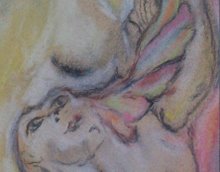



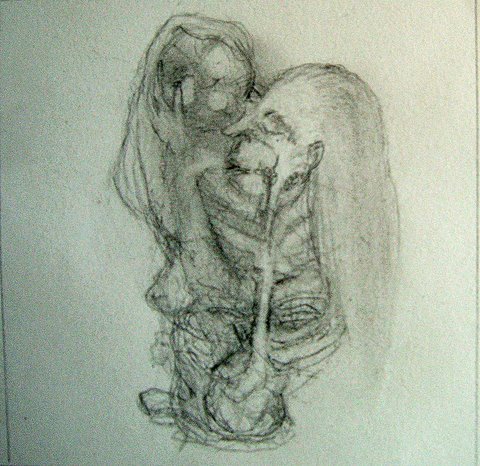
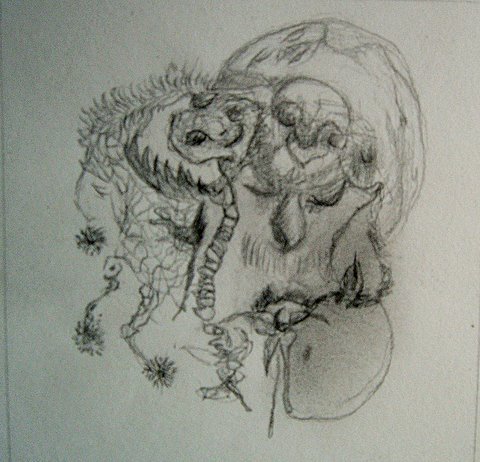
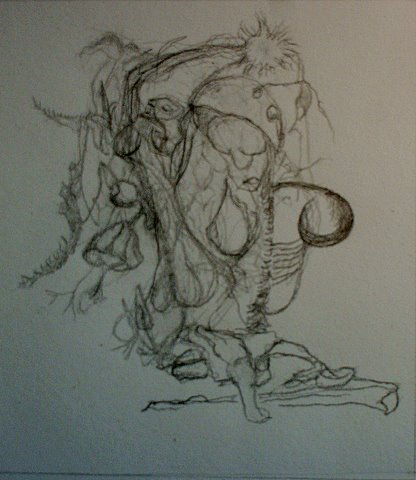
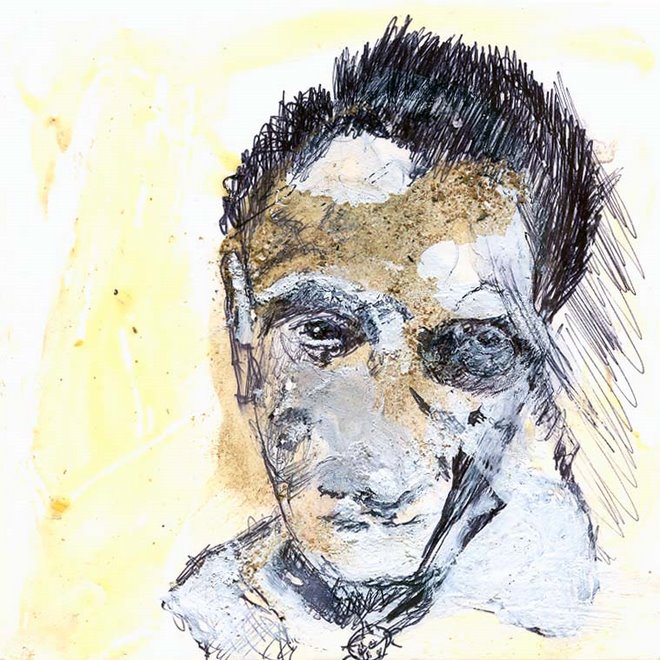
No comments:
Post a Comment